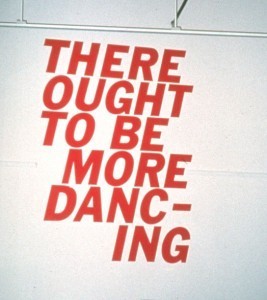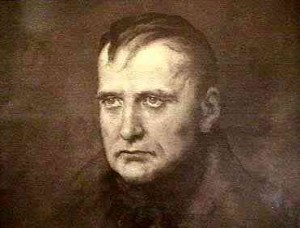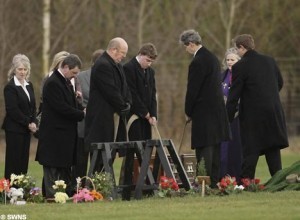Donald Miller's Blog, page 121
April 19, 2011
Two Words That Kill Passion
I was having lunch with an accomplished surgeon recently who told me the two words that will kill the heart fastest are the words "ought to."
 The reason I was having lunch with the surgeon was because I was interviewing him for a potential book. He's a head surgeon at a nationally renowned hospital and does an enormous amount of charity work, even advising the American military on how their hospital ships can be more efficient while being used in disaster relief. If the average doctor saves hundreds of lives in the span of their career, this guy has likely saved hundreds of thousands.
The reason I was having lunch with the surgeon was because I was interviewing him for a potential book. He's a head surgeon at a nationally renowned hospital and does an enormous amount of charity work, even advising the American military on how their hospital ships can be more efficient while being used in disaster relief. If the average doctor saves hundreds of lives in the span of their career, this guy has likely saved hundreds of thousands.
When I asked why he desires to help so many people, his answer surprised me. He said "because it's fun." And then he went on to say "I like helping people because I enjoy it, I'm the opposite of an evangelical." I don't know if he knew I was a Christian, but the comment came like a curveball and I had nothing to say. I was so accustomed to the passive guilt complex so many of us hear week after week and in book after book that I knew he'd have no shortage of evidence that Evangelicals are constantly being made to do good things they don't really feel like doing.
In contrast, as I read through the book of Acts, a defining characteristic of the early church is they felt joy in their work. I don't see a lot of shame and guilt manipulation in Acts, just a bunch of people who act like they are weirdly in love with each other and with God. And I want to emphasize the word weirdly.
So, I'm debating cutting back on the ought to's and ramping up the fun. Some aspects of service feel more like duty, and others feel more like fun. I wonder if we stopped the "ought to" aspects of loving people and got more in touch with the kinds of service that come out of our skill sets and passions we wouldn't be more effective.
Of course there are people who would say if we only did what was fun and not what we ought to we'd not care about other people at all, we'd just be out having sex and getting drunk all the time. If that's you, I'm really sorry.I mean that. But not everybody is wired that way. If you set most people free from all guilt and shame, they'd likely live normal lives and still be altruistic. I really believe most people are pretty good at moderation and don't need a guilt trip to govern themselves.
What about you, though? Do you live with a feeling of "ought to" in your life? And if you were more like my new friend the surgeon, doing good things for people because it was a fun and fulfilling way to live, do you think you'd be an even more giving person?
Two Words That Kill Passion is a post from: Donald Miller's Blog
April 18, 2011
How Christ Built an Army Without Weapons
I've always been moved by the reflection Napolean Bonaparte gave to Christ during his exile on the Island of Saint Helena. Considering his accomplishments as a man and a military leader, and comparing himself to Caesar and Alexander the Great, Bonaparte settles on Christ as the most inspiring of men. What is so wonderful about his reflection is that it reminds leaders of the insufficiency in grandiose posturing and bravado, and settles upon the greatest motivation: Love.

We don't think of love as a strength, but as a compromise of strength. And we certainly don't think of the value of love in affecting mass, social change, and yet Napoleon realizes he and his work will be forgotten and other leaders will flicker and fade while the work of Christ carries on. And why? Because Jesus loved his men, and charged those men to take his message of love to the ends of the earth. I am wondering whether or not we think of the great commission as a duty, a charge, or a joyful expression of love?
Not only this, but Christ charged these men not to kill but to die. And he offered them no sure land or right or dignity or position in the afterlife. They were fueled by a promise to simply be with Him, the one they loved. Napoleon's armies would kill for him and for France, but Christ's friends would and do die for him.
Napoleon forgets the work of the Holy Spirit in this process, and also the eternal nature of the Kingdom Christ represents, and yet I'm amazed that even he, a man who fought and killed, would reflect on the gentle nature of Jesus as a more powerful force than his own canons.
And so when I read Napoleon's reflection, I am reminded the movement we are in is, first and foremost, a movement of love. And I am reminded that love is a force, the most powerful of forces. We shouldn't think of it in weak terms any longer. We have to get that association out of our thinking.
How insufficient a choice is it, then, to replace love with leadership techniques, which so often amount to worldly manipulation? And how insufficient is it for us to love as a way of leading, but not lead others to the source of that love?
Here are Napoleon's reflections from exile:
"What a conqueror!–a conqueror who controls humanity at will, and wins to himself not only one nation, but the whole human race. What a marvel! He attaches to himself the human soul with all its energies. And how? By a miracle which surpasses all others. He claims the love of men–that is to say, the most difficult thing in the world to obtain; that which the wisest of men cannot froce from his truest friend, that which no father can compel from his children, no wife from her husband, no brother from his brother–the heart. He claims it ; he requires it absolutely and undividedly, and he obtains it instantly.
 Alexander, Caesar, Hannibal, Louis XIV strove in vain to secure this. They conquered the world, yet they had not a single friend, or at all events, they have none any more. Christ speaks, however, and from that moment all generations belong to him; and they are joined to him much more closely than by any ties of blood and by a much more intimate, sacred and powerful communion. He kindles the flame of love which causes one's self-love to die, and triumphs over every other love. Why should we not recognize in this miracle of love the eternal Word which created the world? The other founders of religions had not the least conception of this mystic love which forms the essence of Christianity.
Alexander, Caesar, Hannibal, Louis XIV strove in vain to secure this. They conquered the world, yet they had not a single friend, or at all events, they have none any more. Christ speaks, however, and from that moment all generations belong to him; and they are joined to him much more closely than by any ties of blood and by a much more intimate, sacred and powerful communion. He kindles the flame of love which causes one's self-love to die, and triumphs over every other love. Why should we not recognize in this miracle of love the eternal Word which created the world? The other founders of religions had not the least conception of this mystic love which forms the essence of Christianity.
I have filled multitudes with such passionate devotion that they went to death for me. But God forbid that I should compare the enthusiasm of my soldiers with Christian love. They are as unlike as their causes. In my case, my presence was always necessary, the electric effect of my glance, my voice, my words, to kindle fire in their hearts. And I certainly posses personally the secret of that magic power of taking by storm the sentiments of men; but I was not able to communicate that power to anyone. None of my generals ever learned it from me or found it out. Moreover, I myself do not possess the secret of perpetuating my name and a love for me in their hearts for ever, and to work miracles in them without material means.
Now that I languish here at St Helena, chained upon this rock, who fights, who conquers empires for me? Who still even thinks of me? Who interests himself for me in Europe? Who has remained true to me? That is the fate of all great men. It was the fate of Alexander and Caesar, as it is my own. We are forgotten, and the names of the mightiest conquerors and most illustrious emperors are soon only the subject of a schoolboy's taks. Our exploits come under the rod of a pedantic schoolmaster, who praises or condemns us as he likes.
What an abyss exists between my profound misery and the eternal reign of Christ, who is preached, loved, and worshipped, and live on throughout the entire world. Is this to die? Is it not rather to live eternally? The death of Christ! It is the death of a God."
How Christ Built an Army Without Weapons is a post from: Donald Miller's Blog
April 17, 2011
Monday Morning Music, Elbow
Have had it for these guys for a while now. Here's Elbow with an orchestra and choir behind them. The new album came out in March. Check it out…
Monday Morning Music, Elbow is a post from: Donald Miller's Blog
April 14, 2011
To Love or be Liked?
 A group of friends and I met a couple weeks ago to go through Michael Hyatt's Life Plan E-book. We will continue to meet until each of us has created our life plan, and I'd recommend this process to any team of people, family, couple, or even individuals who want to better understand how they are wired and get some clarity on how they'd like to spend their time. My guess is I will be blogging about this process a bit more in the coming weeks.
A group of friends and I met a couple weeks ago to go through Michael Hyatt's Life Plan E-book. We will continue to meet until each of us has created our life plan, and I'd recommend this process to any team of people, family, couple, or even individuals who want to better understand how they are wired and get some clarity on how they'd like to spend their time. My guess is I will be blogging about this process a bit more in the coming weeks.
The first question we asked each other was designed to manifest our values, and to "start with the end in mind." The question was simple: What will your funeral look like?
Each of my friends is remarkably accomplished, even though they are younger than I am. And our ambitions showed in how we answered the question. We wanted people at our funerals to know we loved them, to say we were kind and gracious and our lives were about helping them. But I found something interesting amongst us, that we wanted different numbers of people to be at our funerals.
I was surprised to realize I only wanted 20 or 25 people at mine. And I meant it. I wanted a small funeral, preferably in my own home, and I wanted everybody in the room to know how much I loved them not because of what I said but because of what I did. I helped them, I was for them, I sacrificed some bit of my life for them.
I love writing books, and I love interacting with strangers, but the truth is, I can only really love about 20 or 25. I have friends who are wired to love more people, but I'm only capable of giving my life to a smaller group. And I was thankful for this question because it gave me permission to do just that, to just ask how can I help a hand full of people over the long haul. How can I help them succeed? How can I comfort them? What do they need from me and how can I serve them best?
But what I really thought about in considering the question was whether or not I desired to love or just be liked. I have no problem being liked by a larger community. I think that's a healthy desire, but what I began to wonder was whether or not my desire to be liked was compromising the time and effort involved in loving and being loved. It was a terrific question that I believe will inspire some change in how I live my life.
So my question to you is: How many people do you want at your funeral?
For some reason, that feels like it would invite a telling response, a response about how we are wired and how we should be living. What about you, a big funeral or a small funeral? And why?
To Love or be Liked? is a post from: Donald Miller's Blog
April 10, 2011
Sunday Morning Music, Marvin Gaye
Just love how fast this song pulls you into it's own mood. Hope you're having a great morning. Here's some Marvin Gaye to get you going. Make me wanna holler for sure.
Sunday Morning Music, Marvin Gaye is a post from: Donald Miller's Blog
Sunday Morning Music, Gustav Holst's The Planets, Jupiter
I've been using Gustav Holst's The Planets to prepare for a book I'll spend the end of this year working on. It's the most spiritual book I've done yet and involves some conversations between God and Satan, a fallen angel who God loves. The music has helped. This is my favorite piece from the symphony. If you've not got this in your collection, it's great stuff. I can't help but apply the movements to theological themes. At 3:16 the Trinity watches their beloved walk away, his last words are that he wants to be the giver. Good morning. Here's Holst's The Planets, Jupiter:
Sunday Morning Music, Gustav Holst's The Planets, Jupiter is a post from: Donald Miller's Blog
April 8, 2011
The Heart Knows the Truth
 I'm working on a friends book at a restaurant down in San Diego, and, even as I type there's a young woman sitting at the table next to me who is talking to another woman who seems to be her mentor. The younger woman is mentally challenged. She speaks in loud, straight sentences that mostly communicate facts: this coco is hot. This floor is scratched. I like the sunshine.
I'm working on a friends book at a restaurant down in San Diego, and, even as I type there's a young woman sitting at the table next to me who is talking to another woman who seems to be her mentor. The younger woman is mentally challenged. She speaks in loud, straight sentences that mostly communicate facts: this coco is hot. This floor is scratched. I like the sunshine.
I'm fascinated, though. I'm loving it, actually. I know I'm wrong to be listening in on somebody else's conversation, but how can I not? I appreciate the simplicity and even the beauty of her awareness of herself, of what she likes, of what is good, and even of what isn't. She thinks decaf coffee is dumb. And it is, isn't it?
What got me, though, was when she started talking about relationships. She told her mentor about a girl who didn't like her. She said this girl had hurt her feelings. When the mentor asked why, what it was that hurt her feelings, the young woman didn't accuse the girl of maliciousness or justify her anger or even repeat whatever the comment was that caused the pain. The young woman just told the plain, straight, truth: I want to be her friend but she doesn't want to be mine. She went on, I'd like her to be my friend. I think I'm a good friend.
Talk about the real language of a real heart. Talk about truth telling. I don't know where my heart learned to translate it's sentiments into such false sophistication, but after hearing this conversation, I think false sophistication is akin to lying, and I don't think lying is the right way to get what you want. I think there's a good chance this girl is going to get the friendships she wants. Who wouldn't want to be friends with somebody this honest?
So next time somebody says "why do you not like that that guy?" maybe I'll be honest and just say "Because I want him to respect me but he doesn't" or some such truth. I wonder what my world would start to look like if I stopped covering things up with distraction and manipulation and spin?
The Heart Knows the Truth is a post from: Donald Miller's Blog
April 5, 2011
Should the Church be Led by Teachers and Scholars?
The church in America is led by scholars. Essentially, the church is a robust school system created around a framework of lectures and discussions and study. We assume this is the way its supposed to be because this is all we have ever known. I think the scholars have done a good job, but they've also recreated the church in their own image. Churches are essentially schools. They look like schools with lecture halls, classrooms, cafeterias and each new church program is basically a teaching program.
 The first disciples were not teachers, they were fishermen, tax collectors and at least one was a Zealot. We don't know the occupation of the others, but Jesus did not charge educators with the great commission, he chose laborers. And those laborers took the gospel and created Christian communities that worked, that did things and met in homes and were active. They made speeches, for sure, but so do businessmen and politicians and leaders in any number of other professions. Educators make speeches and do little else, except study for their next lecture. I wonder what the first disciples would think if they could see our system of schools, our million lectures, our billion sub lectures, our curriculums and our lesson plans. I think they'd be impressed, to be honest, but I also think they'd recognize a downside.
The first disciples were not teachers, they were fishermen, tax collectors and at least one was a Zealot. We don't know the occupation of the others, but Jesus did not charge educators with the great commission, he chose laborers. And those laborers took the gospel and created Christian communities that worked, that did things and met in homes and were active. They made speeches, for sure, but so do businessmen and politicians and leaders in any number of other professions. Educators make speeches and do little else, except study for their next lecture. I wonder what the first disciples would think if they could see our system of schools, our million lectures, our billion sub lectures, our curriculums and our lesson plans. I think they'd be impressed, to be honest, but I also think they'd recognize a downside.
Church divisions are almost exclusively academic divisions. The reason I don't understand my Lutheran neighbor is because a couple academics got into a fight hundreds of years ago. And the rest of the church followed them because, well, they were our leaders. So now we are divided under divisions caused by arguments a laboring leadership might never have noticed of cared about. Practitioners care about what works, what gets things done. They have to agree because there are projects on the line. Educators don't have to agree at all. They can fight and debate and write papers against each other because, well, the product they are churning out is just thought, not action.
So why are we led by teachers? After all, the church and the school system are the only institutions in our culture led purely by academics. Well, the reason is the printing press. The government once controlled the church, but that ended when the printing press was invented and people could read the Bible for themselves. And the scholars were the only people who could read, so they got the job of church leadership by default. So church leadership went from fishermen, to government workers, to scholars. I wonder who's next? I've got money on music executives, if only because they're all looking for work.
Because we've been led by scholars for so long, we have slightly distorted ideas about Christian discipleship. If you want to grow in Christ, you should study more. Christian growth, then, is an academic path. And like educators, we only advance to become higher level educators. The point of learning is always teaching which produces further learning and then more teaching. The only difference between the church and another educational institution is that nobody ever graduates from the church. We just keep going to school.
But if normal people like you lead the church, won't the church be read by heretics? Yes, and it already is.
In the great commission, Jesus graduated his first group of students. He pushed them into the world and said, you don't know everything, but you know enough. You'll have a guide and that guide will be with you always. Go and teach the world to obey my commands. Because they were fishermen and tax gatherers, they went and did it. Did Jesus teach them for three years? Yes, he taught them by doing, in action, with people, by touching stuff, not by taking over a school and recruiting educators. I wonder what they would have done if they had been professional scholars? My guess is they would have talked the command into a tailspin, dissected it into a million pieces, then divided themselves into different intellectual camps, and built a bunch of schools to teach their various interpretations.
So maybe if you're a doctor or a plumber or a carpenter, you should lead the church. Maybe the church needs some of you who don't write and speak and teach for a living to step up and put some action to our faith. I wonder what your churches would look like? Maybe you could meet in homes, appoint some elders, pray for each other, read the Bible to each other, and then just serve your communities and each other in love. Maybe you wouldn't need a classroom at all. Go ahead, lead. You're qualified. You'll have a guide. You've graduated.
* Whenever I write a post like this I encounter dualism, people who think I'm saying if Jesus didn't choose educators than Bible College is wrong. We really have to stop thinking in either/or. There is no path, there is only a guide. There are a million right ways to be the church.
* Let me ask you this: Aren't you a little tired of scholars and psudo-scholars fighting about doctrine? Is it worth it that you are divided against other denominations because scholars picked up their ball and stomped off the playground? If you are tired, then be the church. I'm not kidding, you don't know everything but you know enough. Be the church and be united. Let the academics go to an island and fight about the things that matter to them, and we will be united based on the things that matter to us.
Should the Church be Led by Teachers and Scholars? is a post from: Donald Miller's Blog
April 4, 2011
Creating a Personal Life Plan
 I've been talking about creating great personal stories for years now. I've written books about it and even host a conference helping people live more strategically. And now I've got a great tool that is helping me execute my stories more efficiently. It's called a Personal Life Plan. You've probably heard about them, but my friend Mike Hyatt has given us a way to create a plan for free. Mike's free e-book, Creating Your Personal Life Plan can be downloaded at his site. I think you just have to give him your name and address and it's all yours. Mike won't spam you, so don't worry. And believe me, it's worth it.
I've been talking about creating great personal stories for years now. I've written books about it and even host a conference helping people live more strategically. And now I've got a great tool that is helping me execute my stories more efficiently. It's called a Personal Life Plan. You've probably heard about them, but my friend Mike Hyatt has given us a way to create a plan for free. Mike's free e-book, Creating Your Personal Life Plan can be downloaded at his site. I think you just have to give him your name and address and it's all yours. Mike won't spam you, so don't worry. And believe me, it's worth it.
Here are several reasons to create a Personal Life Plan:
1. A personal Life Plan is a foundation: If you feel like your life is crumbling, it's probably because you either have a foundation that isn't quite strong enough or you've got too much weight on your foundation. Strengthening your foundation is accomplished through a clarification of values. What matters to you most? What do you really care about? What will matter in the end? All great questions, and all questions that strengthen our foundations.
2. A Personal Life Plan is a filter: If your foundation is already strong, another problem may involve taking on too much stuff. Either too many relationships, the wrong relationships, projects that aren't aligned with who you are as a person or your personal values, or work that you could be delegating to somebody else. Creating a Life Plan automatically establishes a filter for your life. Because your values are clear, you will know much better what matters and what doesn't, and you'll be able to get some of the burden off your shoulders.
3. A Personal Life Plan gets you in touch with your heart: This is much more than a tool for busy executives. A Personal Life Plan helps you focus on what matters most: relationships. This is not a book about how to be more efficient, though it will accomplish that. The gist of a life plan involves strategically aiming your life toward a more fulfilling overall experience, setting great relationships as the primary aim.
4. A Personal Life Plan can create community: I decided not to do this exercise alone. I invited four of my friends into the process with me. We each printed out the book and met at my house to get started. The first exercise led us into a discussion about our funerals. We each talked about what we want our funerals to look like. The conversation was deep, powerful, and connected us as a group of friends. I was surprised at how some of my friends answered the question, and even more surprised at how I answered the question. We left with some homework, which will be obvious when you read through the book, and will be meeting again and again until we've gone through the entire book and each have our Personal Life Plans in order.
Please download Mike's e-book, Creating Your Personal Life Plan, and also consider filling out your plan with your closest friends, your family, or even your colleagues. I'll be using this resource for years. Very thankful to Mike for creating it and giving it to us for free.
Creating a Personal Life Plan is a post from: Donald Miller's Blog
April 3, 2011
Sunday Morning Music, Iron and Wine
So music videos used to be great art. I remember R.E.M. when they lost their religion, and how we were all spellbound at the money and visuals that went into the video. Then MTV stopped playing music, and the internet made it less of a showcase. Now, video is cheap and bands are getting creative again. I liked this one from last year, perhaps, most. This morning, enjoy Iron and Wine:
Sunday Morning Music, Iron and Wine is a post from: Donald Miller's Blog
Donald Miller's Blog
- Donald Miller's profile
- 2745 followers



